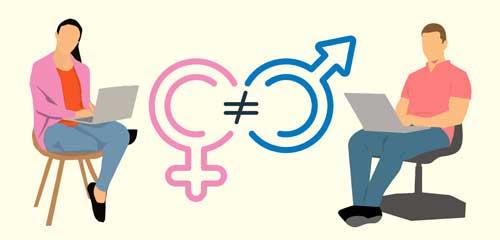06 Mar 2024 - {{hitsCtrl.values.hits}}
No country, not even the wealthiest, provide equal opportunity for women which confirms that global gender gap for women in the workplace is far wider than previously thought, the World Bank said.
women in the workplace is far wider than previously thought, the World Bank said.
When legal differences involving violence and childcare are taken into account, women enjoy fewer than two-thirds the rights of men.
Despite advancements in equal-opportunity legislation, women around the world still face significant disparities in legal protections and access to critical services even in the wealthiest of economies, the WB’s latest report ‘Women, Business, and the Law’ revealed.
In South Asia, including Sri Lanka, none of the eight economies have scored above the legal index global average of 64.2. Sri Lanka scored 45.0 for legal frameworks, 30.0 for supportive frameworks and a 41.3 expert’s opinion score on its status of women’s rights.
Furthermore, none of the 8 countries have achieved legal gender parity, despite allowing women to be “head of households”. Sri Lanka, in particular, does not have access to affordable and quality childcare, receiving a score of zero in this aspect. Women have access to only 64 percent of the legal protections available to men, according to the report. While 98 economies have enacted equal pay legislation, only 35 have implemented measures to address the pay gap effectively. This means countries on average have established less than 40 percent of the systems that allow women to enjoy roughly two-thirds the rights of men. The global average score for women’s safety stood at 36, indicating women enjoying barely a third of the required legal protections against violence and harassment. Although workplace sexual harassment laws exist in 151 countries, only 39 have laws prohibiting it in public spaces. Additionally women spend an average of 2.4 more hours a day on unpaid care work than men, with only 78 economies providing some financial or tax support for parents with young children.
Only 62 economies have quality standards for childcare services, impacting women’s workforce participation.
Entrepreneurship opportunities for women are also limited, with only one in five economies mandating gender-sensitive criteria for public procurement, cutting off women out of a US$10 trillion-a-year economic opportunity. It also means that women earn just 77 cents for every dollar earned by men.
For the first time, Women, Business and the Law assesses the gap between legal reforms and actual outcomes for women in 190 economies.
30 Nov 2024 11 minute ago
30 Nov 2024 1 hours ago
29 Nov 2024 29 Nov 2024
29 Nov 2024 29 Nov 2024
29 Nov 2024 29 Nov 2024